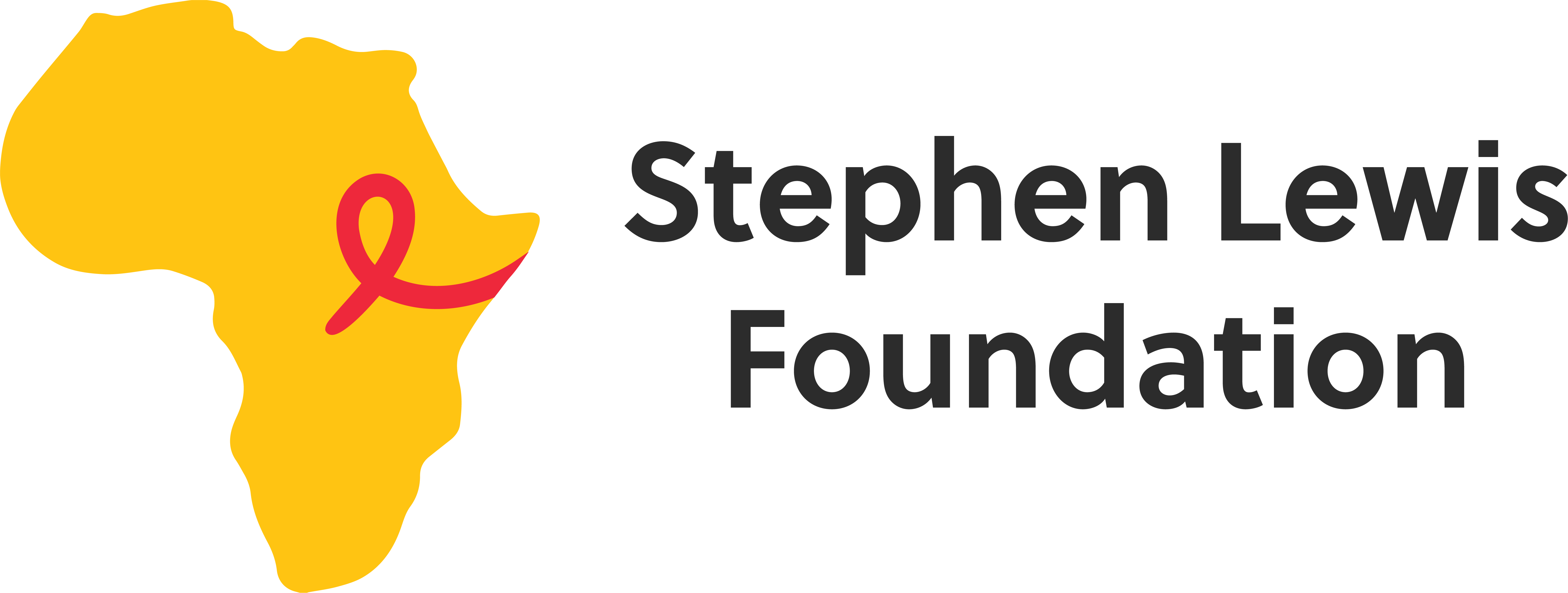
Areas of Work
The Stephen Lewis Foundation partners with community-led organizations in the 14 countries that have been hardest hit by the HIV epidemic in Africa. They work in six key areas.
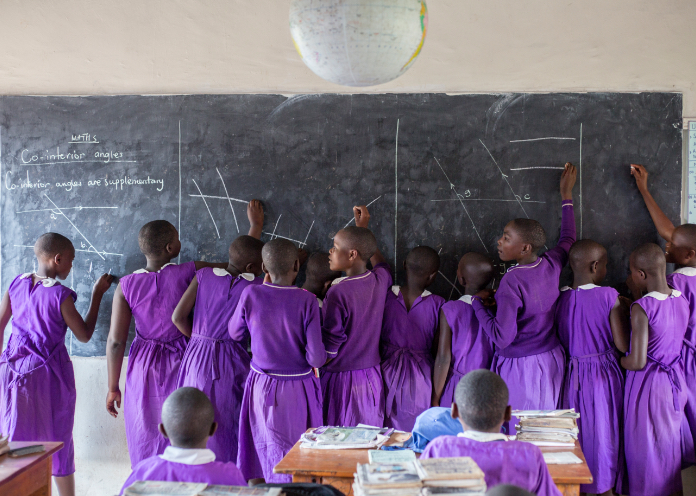
Photo Credit: Kibuuka Mukisa Oscar
Description: Nyaka AIDS Orphans Trust
Location: Uganda
Children and Young People
HIV and AIDS has had devastating impacts on children and youth in sub-Saharan Africa. SLF partners deliver HIV prevention, treatment, and care that supports their multidimensional needs, so they can stay healthy and thrive. Programs delivered by SLF partners save and improve the lives of thousands of children and youth who are supported to access education, adhere to HIV treatment, and become active leaders in their communities.
“… the youth who used to be with MU-JHU are now getting on board as staff and volunteers, that’s something we should be proud of. MU-JHU and the SLF have supported us since we were little, and now we have grown up and are starting to lead this work.”
– Josephine Nabukenya, MU-JHU, Uganda
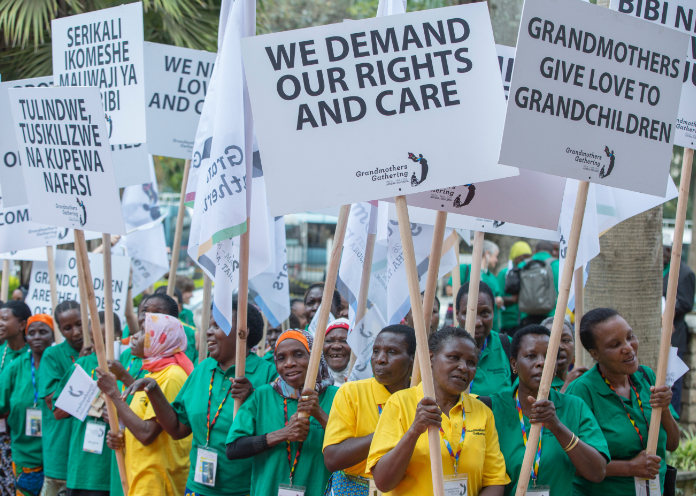
Photo Credit: Alexis MacDonald/SLF
Description: Tanzania Grandmothers Gathering march
Location: Tanzania
Grandmothers
Grandmothers across sub-Saharan Africa have stepped in to care for millions of children orphaned by AIDS, many after losing their own children to the pandemic. SLF partners provide resilience-building support, often led by grandmothers, including healthcare, grief counselling, parenting assistance, leadership training, and income-generation. Grandmothers are developing networks and organizing to claim their human rights and collectively advocate for secure futures at local, national and international levels.
“…in the village where we work, grandmothers are leaders. Grassroots mobilization has given grandmothers back their lives … this goes way beyond recovery, way beyond reclaiming what was lost. This is something brand new these women are doing. Something entirely new the world has never seen before.”
– Kenneth Mugayehwenkyi, founder of ROTOM and Chair of the Grandmothers Consortium in Uganda
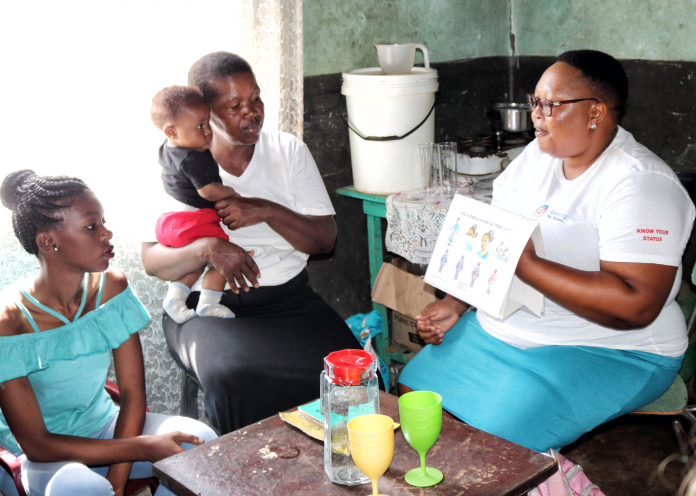
Photo Credit: Ryan Tantuan
Description: mothers2mothers
Location: Lesotho
Home-Based Care
Home-based care is critical to delivering effective HIV and AIDS services and programs in sub-Saharan Africa. SLF partners have developed models of comprehensive treatment and care for community members who would otherwise have challenges accessing the supports they need and deserve. By improving access to HIV prevention and treatment services, healthcare, nutrition, counselling and income-generation opportunities, SLF partners bring about better health outcomes for their communities.
“Home-based care is an integral part of the chain of support that Kimara Peers offers. Home-based care is an entry point for direct assistance, such as school support or food parcels. And it is through home-based care that families are connected to more support programs, such as peer mothers, kids’ clubs, and groups for savings and loans and income generation.”
– Kimara Peers, in Tanzania
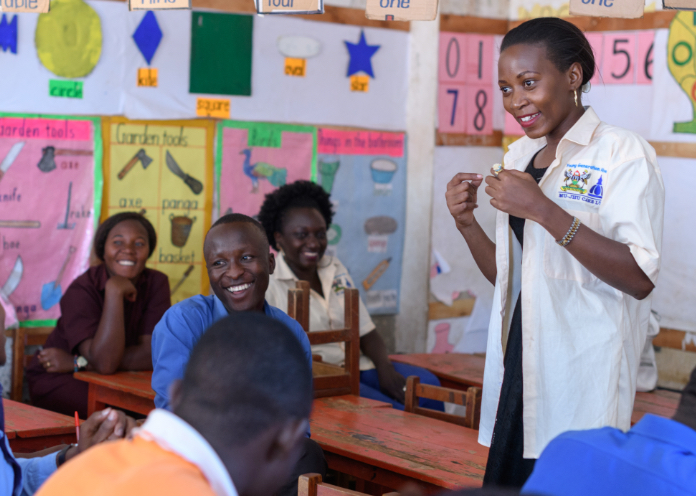
Photo Credit: Museruka Emmanuel
Description: Josephine Nabukenya, MUJHU Care Limited
Location: Uganda
Positive Living
Stigma and discrimination remain a pervasive barrier to openly declaring one’s HIV-positive status. And yet millions of people across sub-Saharan Africa have done just that. They have come together to lead organizations, address stigma and discrimination, and advocate for the rights of people living with HIV. By their example of positive living, and with support from SLF partners, they encourage others to get tested, access available treatment, speak out, and champion change.
“The most important aspect of the support we provide is getting an individual to understand that there is life beyond being HIV positive. We promote living life to the fullest, being productive, gaining more knowledge, planning for the future, taking care of those in need of support, building solidarity, accepting one’s HIV status, and protecting oneself and others.”
– MATRAM, in Mozambique
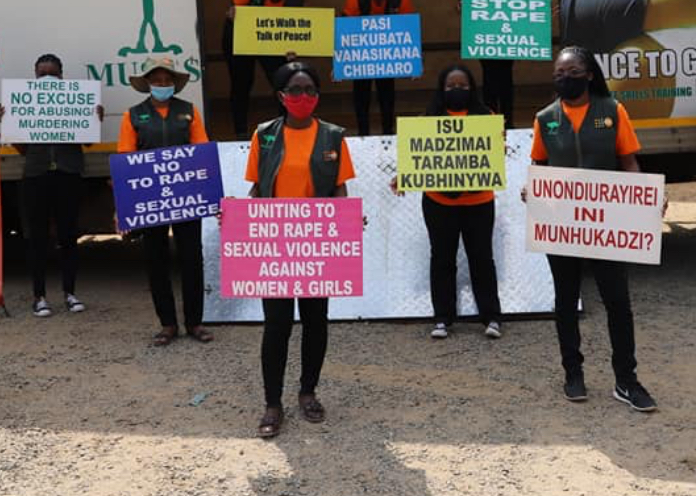
Photo Credit: Musasa Project
Location: Zimbabwe
Ending Violence Against Women and Girls
At the intersections of gender-based violence and HIV, women and girls are disproportionately affected. Gender inequalities limit freedom, autonomy, and meaningful access to social and economic opportunities. Inequalities and violence against women and girls are directly linked to rising rates of HIV transmission, particularly among adolescent girls. SLF partners deliver interventions that assist women and girls to enact their human right to take control of their sexual and reproductive health and lives, prevent HIV transmission, and live free from violence. These expert organizations provide holistic care, conduct outreach to raise awareness and prevent further violence, seek justice, and restore dignity and hope to survivors.
Read our online report, Hope in Action: Community-led efforts to end gender-based violence and the HIV epidemic
“Empowerment to make informed decisions became a dynamic process, carried out by the women themselves after consistent life-changing trainings within the shelter. Through this program, Musasa sincerely empowered women and girls who are survivors of gender-based violence through comprehensive, client-centred programs, which enabled them to deal with their situation and reduce their vulnerability.”
– Musasa Project, in Zimbabwe
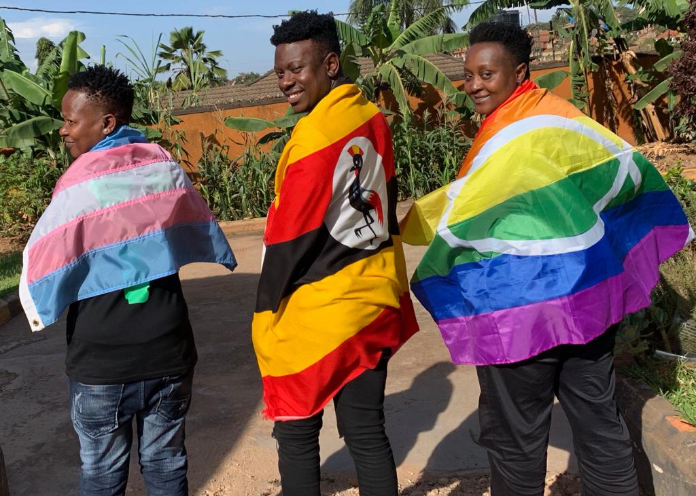
Photo Credit: Sexual Minorities Uganda (SMUG)
Location: Uganda
Health and Human Rights for LGBTIQ Communities
Stigma, discrimination and violence against LGBTIQ communities across the African region create life-threatening barriers to health and social services. SLF partner organizations, run by and for LGBTIQ communities, provide healthcare – including HIV prevention, testing and treatment – peer support and counselling, and legal and economic support. They are committed to repealing homophobic and transphobic laws, building inclusive communities, and ensuring the health and human rights of all LGBTIQ individuals through legal action and advocacy. Join the movement to champion health and human rights for LGBTIQ communities in sub-Saharan Africa, Partners in Pride Campaign.
“We affirm the human rights of LGBTI persons to promote their protection against violence and human rights violations. We organize community action for collective health and well-being and individuals’ self-determination.”
– Minority Womyn in Action, in Kenya
